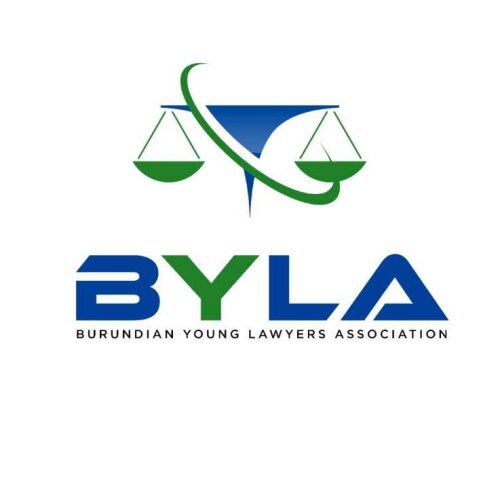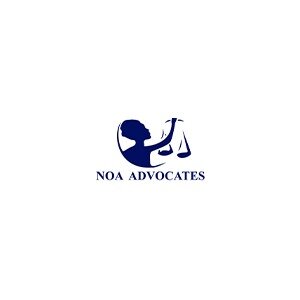Best Banking & Finance Lawyers in Burundi
Share your needs with us, get contacted by law firms.
Free. Takes 2 min.
Or refine your search by selecting a city:
List of the best lawyers in Burundi
About Banking & Finance Law in Burundi:
Banking and finance law in Burundi regulates the operations of financial institutions, such as banks, credit unions, and microfinance institutions. It covers a wide range of activities, including loans, investments, securities, and financial transactions.
Why You May Need a Lawyer:
You may need a lawyer in banking and finance in Burundi to help you with issues such as loan agreements, debt restructuring, securities regulation, banking regulations, dispute resolution, and compliance with financial laws and regulations.
Local Laws Overview:
In Burundi, the banking and finance sector is regulated by the Central Bank of Burundi and the Banking and Credit Regulation Authority. Key laws that are relevant to banking and finance include the Banking Law, the Law on Microfinance Institutions, and the Securities Law.
Frequently Asked Questions:
1. What are the key regulatory bodies in Burundi's banking and finance sector?
The key regulatory bodies are the Central Bank of Burundi and the Banking and Credit Regulation Authority.
2. What are the requirements for opening a bank account in Burundi?
To open a bank account in Burundi, you will need to provide identification documents, proof of address, and meet any other requirements set by the bank.
3. What are the penalties for non-compliance with banking regulations in Burundi?
Penalties for non-compliance with banking regulations in Burundi can include fines, sanctions, and the revocation of a financial institution's operating license.
4. Can foreign investors participate in Burundi's banking and finance sector?
Yes, foreign investors can participate in Burundi's banking and finance sector, subject to any restrictions or requirements set by the government.
5. How are disputes in the banking and finance sector resolved in Burundi?
Disputes in the banking and finance sector in Burundi can be resolved through negotiation, mediation, arbitration, or litigation in the courts.
6. What are the key provisions of the Banking Law in Burundi?
The Banking Law in Burundi regulates the establishment, operation, and supervision of banks, as well as prudential requirements, capital adequacy, and risk management.
7. Are there specific laws regulating microfinance institutions in Burundi?
Yes, Burundi has specific laws governing microfinance institutions, such as the Law on Microfinance Institutions, which regulates their establishment, operation, and oversight.
8. What types of securities are regulated under Burundi's Securities Law?
The Securities Law in Burundi regulates various types of securities, including shares, bonds, and other financial instruments traded on the stock exchange.
9. How can I ensure compliance with banking and finance laws in Burundi?
To ensure compliance with banking and finance laws in Burundi, you should seek legal advice, stay informed about regulatory changes, and implement robust compliance policies and procedures.
10. Are there any restrictions on lending practices in Burundi?
Yes, there are restrictions on lending practices in Burundi, such as interest rate caps, requirements for loan documentation, and prohibitions on predatory lending practices.
Additional Resources:
For more information on banking and finance law in Burundi, you can visit the Central Bank of Burundi's website or consult with a local law firm specializing in financial law.
Next Steps:
If you require legal assistance in banking and finance in Burundi, it is recommended to contact a qualified lawyer with experience in financial law to guide you through the legal process and protect your rights and interests.
Lawzana helps you find the best lawyers and law firms in Burundi through a curated and pre-screened list of qualified legal professionals. Our platform offers rankings and detailed profiles of attorneys and law firms, allowing you to compare based on practice areas, including Banking & Finance, experience, and client feedback.
Each profile includes a description of the firm's areas of practice, client reviews, team members and partners, year of establishment, spoken languages, office locations, contact information, social media presence, and any published articles or resources. Most firms on our platform speak English and are experienced in both local and international legal matters.
Get a quote from top-rated law firms in Burundi — quickly, securely, and without unnecessary hassle.
Disclaimer:
The information provided on this page is for general informational purposes only and does not constitute legal advice. While we strive to ensure the accuracy and relevance of the content, legal information may change over time, and interpretations of the law can vary. You should always consult with a qualified legal professional for advice specific to your situation.
We disclaim all liability for actions taken or not taken based on the content of this page. If you believe any information is incorrect or outdated, please contact us, and we will review and update it where appropriate.
Browse banking & finance law firms by service in Burundi
Burundi Attorneys in related practice areas.
Browse banking & finance law firms by city in Burundi
Refine your search by selecting a city.












